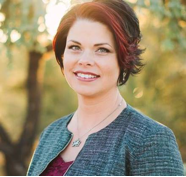Finding FAP: One Family’s Journey to Acceptance for Themselves & Others

When Wendy and Tom Montgomery discovered that their 13-year old son, Jordan, was gay, they searched for guidance on how to support Jordan, their devout Mormon family and themselves. After reading dozens of books and materials, Wendy found the Family Acceptance Project’s research-based family education booklet and in an interview at the time called it “the brightest sunshine in the darkest abyss of my life.” Their story is chronicled in the Family Acceptance Project’s award-winning family education and intervention film, Families Are Forever, which is the first Best Practice video for suicide prevention for LGBTQ youth in the Best Practices Registry for Suicide Prevention.
Tell us about the very first time you discovered the Family Acceptance Project (FAP) and their Best Practice family education materials.
When I first learned my then 13-year-old son was gay, I turned into this master researcher. I couldn’t eat. I couldn’t sleep. I couldn’t shut my mind off long enough to relax. I was so driven to find answers to help my son. One of the many people I reached out to was Mitch Mayne, the first openly gay man to serve in a leadership role in the Mormon Church. Mitch told me about the Family Acceptance Project and introduced me to Dr. Caitlin Ryan. When I read Dr. Ryan’s booklet “Supportive Families, Healthy Children” for LDS families, I just wept. It honestly felt like the first ray of sunshine I’d felt in months.
Talk about how your relationship with FAP helped change your family’s experience when Jordan came out.
When I started researching how to help my son, I kept looking for a story like mine — of a Mormon family with a gay child who loved and supported their child AND held on to their religion. But I could only find stories of families that chose one or the other. I refused to be pushed into either scenario. So when Dr. Ryan asked us to be one of the families in her FAP’s documentary film series (for Families Are Forever), we said yes. I knew I couldn’t be the only one looking for resources that showed us how to celebrate who our son was while holding onto our faith, even if we had to redefine parts of that faith. I wasn’t prepared for the attention and spotlight we received from it. I guess that speaks to the massive need this film has filled — the need for LDS-specific (Latter-Day Saint) resources for families like mine — and for other religious families.
Since FAP’s film was made, you have become, as a family, very engaged in LGBT rights. How have Jordan's siblings have been involved with this? His dad?
For the most part, my husband and I have been on the same page in how we have protected, defended, and advocated for our son. Tom is a gifted writer and advocates for Jordan and others in the Mormon LGBTQIA+ community through his beautiful and thought-provoking articles. I have traveled around the country, speaking and presenting to large and small audiences. I sit on the board of directors for two LGBTQIA+ organizations — Affirmation and Mama Dragons. Our children advocate each in their own way to support their brother and friends. Being a part of this work has definitely brought us closer together as a family.
What are the “Mama Dragons?”
“Mama Dragons” started with six to seven women, all Mormon moms of LGBTQ kids. We started a Facebook private message thread to share our fears, pains, tears, laughter, triumphs, questions, etc. It was our lifeline. For most of us, this was the only safe place we had to talk about having gay and trans children. The name came about because “mama bear” simply didn’t feel strong enough for how we now felt about our children. So we called ourselves Mama Dragons.
In the spring of 2014, one of the original Mama Dragons did an interview with the Salt Lake Tribune and talked about our group. Once it became public knowledge, our numbers exploded. In less than 3 years, we went from 7 women to over 1,400. Now our fellow moms have a strong and beautiful community of women to provide support, as they learn to love and advocate for their children.
How has FAP made a difference for Mormons?
In the beginning, I felt like I had to choose between the God that I loved and the child that I loved. If forced to choose, it would be my child — without question. But I didn’t want to choose. I wanted both. After reading the booklet from the Family Acceptance Project, I felt — for the first time since Jordan came out — that it was possible to completely love and support my son, while being able to keep the faith I loved.
What advice would you give to a parent or family with a family member, particularly a young person, who is coming out?
You are NOT alone. So many have walked this path before you and many will come after you. The most important thing is for your child/loved one to know you love them — without reservation or condition. Please make that abundantly clear to them. Don’t assume they already know. TELL THEM.
Believe me when I tell you that even if you can’t see it right now, having an LGBTQIA+ child will become the biggest gift and blessing in your life. My religion didn’t teach me how to love. My son did.